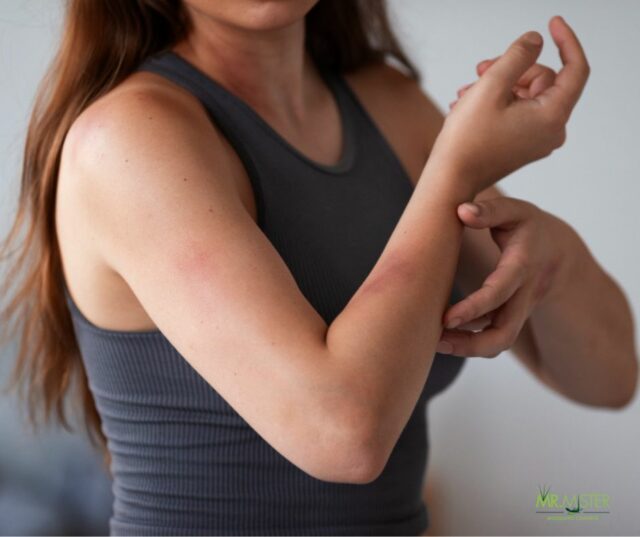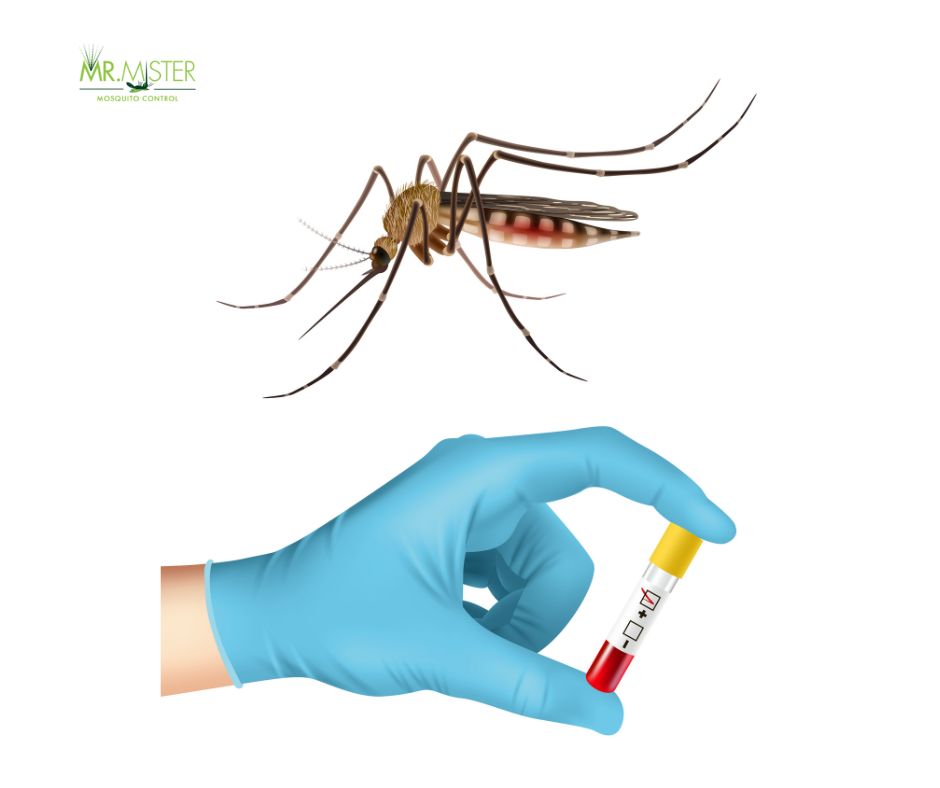Mosquito Bites: Why Do They Prefer Some People?
Mosquitoes, those tiny, buzzing nuisances that seem to have an uncanny ability to locate their next blood meal, are an inevitable part of warm weather. However, have you ever noticed that some individuals seem to be more prone to mosquito bites than others? The reasons behind this preference are multifaceted, involving a combination of genetic, environmental, and physiological factors. In this article, we’ll explore the science behind why mosquitoes choose some people over others and discuss potential ways to minimize the chances of becoming their preferred target.
Genetic Predisposition
Mosquitoes are attracted to certain scents and chemicals emitted by the human body. Studies have shown that genetics play a crucial role in determining an individual’s susceptibility to mosquito bites. People with blood type O, for instance, tend to attract mosquitoes more than those with blood type A or B. Additionally, the secretion of certain chemicals through the skin, such as uric acid and ammonia, is influenced by genetics and can make some individuals more appealing to mosquitoes.
Furthermore, recent research has delved into the genetic factors influencing the production of specific skin odors that mosquitoes find particularly alluring. Variations in the genes responsible for producing these odors may contribute to an individual’s heightened attractiveness to mosquitoes. Additionally, the presence of certain volatile compounds in sweat, such as lactic acid and carboxylic acids, can be influenced by genetic factors, further influencing mosquito preference.
Body Odor and Sweat
Mosquitoes are highly sensitive to the smells produced by our bodies, and body odor is a significant factor in attracting them. Certain chemicals found in sweat, such as lactic acid, ammonia, and uric acid, can draw mosquitoes towards individuals who produce higher amounts of these substances. Furthermore, the bacteria on the skin break down sweat into volatile compounds that create an attractive scent for mosquitoes.
Carbon Dioxide Emission
In addition to genetic factors, mosquitoes employ a keen sense of smell to locate their hosts, with one of their primary cues being carbon dioxide (CO2) emissions. Larger individuals and those engaged in physical activities tend to exhale increased amounts of CO2, making them more conspicuous targets for mosquitoes. This heightened exhalation creates a larger and more detectable plume of CO2 in the surrounding air, essentially acting as a beacon for these blood-seeking insects.
Moreover, pregnant women face an elevated risk of mosquito bites due to their increased production of CO2. The metabolic demands of pregnancy result in heightened respiration rates, leading to higher CO2 emissions. This physiological change makes pregnant women more attractive to mosquitoes, as the insects are adept at honing in on these elevated carbon dioxide levels. Understanding the role of CO2 in mosquito attraction can inform strategies for targeted mosquito bite prevention, particularly for individuals with heightened CO2 emissions.
Body Heat
Mosquitoes are drawn to warmth, and individuals with higher body temperatures are more likely to become targets. This can be influenced by various factors, including metabolism, physical activity, and even the consumption of certain foods that increase body heat.
Clothing Color
Believe it or not, the color of your clothing can influence mosquito attraction. Mosquitoes are more attracted to dark colors, such as black and navy blue, making individuals wearing these hues more susceptible to bites. Opting for lighter colors can help reduce the likelihood of attracting mosquitoes.
Pregnancy
Pregnant women are known to be more prone to mosquito bites, likely due to the increased production of heat, body odors, and carbon dioxide associated with pregnancy. Additionally, hormonal changes during pregnancy can alter the scent of an individual’s skin, making them more appealing to mosquitoes.
Blood Type and Chemical Attractants:mosquito bites blood type
Beyond genetic factors, the specific type of blood an individual possesses can significantly impact their appeal to mosquitoes. Notably, individuals with type O blood are often found to be more attractive to these insects than those with type A or B blood. Mosquitoes seem to exhibit a preference for certain blood types, possibly due to variations in the composition of blood-related chemicals.
Moreover, mosquitoes are drawn to specific chemicals present in the blood, such as byproducts resulting from the metabolism of cholesterol and steroids. These compounds, when present in higher concentrations, can contribute to the mosquito’s preference for certain individuals. The intricate interplay between blood type and the chemical composition of blood adds another layer to the complexity of mosquito preferences, emphasizing the multifaceted nature of factors that contribute to an individual’s susceptibility to mosquito bites. Understanding these intricacies can aid in the development of targeted interventions for mosquito bite prevention.
Microbial Influence:
The diverse community of microbes living on the skin’s surface plays a role in attracting mosquitoes. The combination of bacteria, fungi, and other microorganisms creates a unique scent that can be appealing to mosquitoes. Understanding the microbial landscape on the skin could offer insights into why some people are more prone to mosquito bites.
Lactic Acid Production:
During physical exertion, the body produces lactic acid as a byproduct of energy metabolism. This compound is a known attractant for mosquitoes. Individuals who engage in regular physical activity or who have a higher metabolism may find themselves more frequently targeted by mosquitoes due to increased lactic acid production.
Personal Care Products:
The scents from lotions, perfumes, and other personal care products can either attract or repel mosquitoes. Some fragrances may mimic the scents produced by mosquitoes’ preferred hosts, making individuals more attractive to these insects. Choosing unscented or mosquito-repelling products can help reduce the risk of bites.
Immunological Factors:
Recent studies suggest that an individual’s immune response may influence mosquito attraction. People with a stronger immune response may emit different chemical signals through their skin, affecting their attractiveness to mosquitoes. Understanding the intricate interplay between the immune system and mosquito preferences could provide new avenues for repellent research.
Environmental Factors:
Local environmental conditions can also impact mosquito activity. Mosquitoes thrive in warm and humid environments, and their activity tends to increase during dusk and dawn. Being mindful of these factors and taking precautions, such as using insect repellent or wearing protective clothing during peak mosquito times, can significantly reduce the risk of bites.
Conclusion
While it may seem like an unavoidable part of summer, understanding why mosquitoes prefer some people over others can empower individuals to take proactive measures to reduce their attractiveness to these pesky insects. From choosing the right clothing colors to being mindful of genetic factors, there are several strategies to minimize the risk of mosquito bites. Ultimately, a combination of these approaches can help create a more mosquito-resistant environment, allowing everyone to enjoy the outdoors without the constant buzz of these unwelcome guests.
For expert assistance in mosquito control tailored to your specific needs, contact Mr. Mister Mosquito Control. Take the first step towards a mosquito-free living space and reclaim your outdoor enjoyment.
FAQs
Why do mosquitoes prefer some people over others?
Mosquitoes are attracted to individuals based on a combination of genetic, environmental, and physiological factors. These include genetic predisposition, body odor, carbon dioxide emission, body heat, clothing color, pregnancy, blood type, microbial influence, lactic acid production, personal care products, and immunological factors.
How does genetic predisposition influence mosquito bites?
Genetic factors, such as blood type and variations in genes responsible for producing specific skin odors, can make some individuals more attractive to mosquitoes. People with blood type O, for instance, tend to attract mosquitoes more than those with blood type A or B.
What role does body odor play in mosquito attraction?
Certain chemicals found in sweat, like lactic acid, ammonia, and uric acid, draw mosquitoes towards individuals who produce higher amounts of these substances. The breakdown of sweat by skin bacteria creates volatile compounds that create an attractive scent for mosquitoes.
Why are pregnant women more prone to mosquito bites?
Pregnant women emit higher levels of carbon dioxide due to increased respiration rates, making them more attractive to mosquitoes. Additionally, hormonal changes during pregnancy can alter the scent of the skin, further increasing susceptibility to mosquito bites.
How does carbon dioxide emission affect mosquito attraction?
Mosquitoes use carbon dioxide (CO2) emissions as a primary cue to locate hosts. Larger individuals, those engaged in physical activities, and pregnant women exhale increased amounts of CO2, making them more noticeable targets for mosquitoes.
Does body heat influence mosquito attraction?
Yes, mosquitoes are drawn to warmth, and individuals with higher body temperatures, influenced by metabolism, physical activity, and certain foods, are more likely to become targets.
Can the color of clothing affect mosquito attraction?
Yes, mosquitoes are more attracted to dark colors such as black and navy blue. Choosing lighter-colored clothing can help reduce the likelihood of attracting mosquitoes.
How does blood type and chemical attractants impact mosquito preferences?
Individuals with type O blood are often found to be more attractive to mosquitoes. Mosquitoes are drawn to specific chemicals present in the blood, such as byproducts resulting from the metabolism of cholesterol and steroids.
Do personal care products play a role in mosquito attraction?
Yes, scents from lotions, perfumes, and other personal care products can either attract or repel mosquitoes. Some fragrances may mimic the scents produced by mosquitoes’ preferred hosts, making individuals more attractive to these insects.
How do immunological factors influence mosquito attraction?
Recent studies suggest that an individual’s immune response may influence mosquito attraction. People with a stronger immune response may emit different chemical signals through their skin, affecting their attractiveness to mosquitoes.
What role do environmental factors play in mosquito activity?
Local environmental conditions, such as warm and humid environments, impact mosquito activity. Mosquitoes tend to be more active during dusk and dawn. Using insect repellent and wearing protective clothing during peak mosquito times can significantly reduce the risk of bites.
* Schedule a Free Mosquito Control Consultation – 404-941-0720 *
* Guaranteed Results * 100% Biodegradable * Locally Owned







